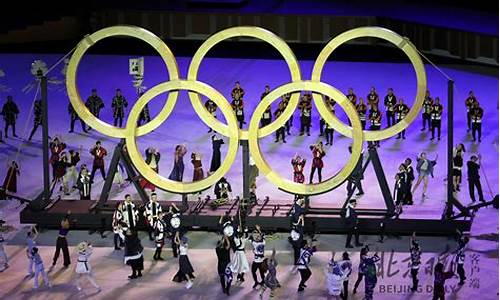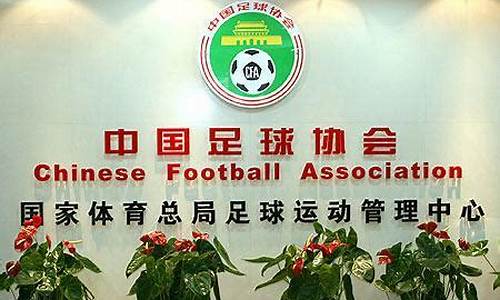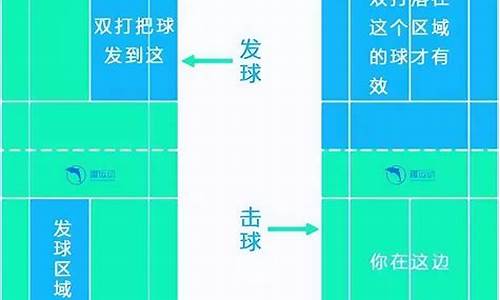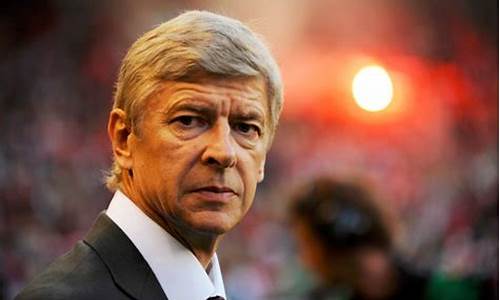奥运会几年举行一次的英文怎么写_奥运会多年举行一次
1.冬奥会英语介绍怎么写?
2.奥林匹克运动会(英文)
3.奥运会的全称叫什么?几年举办一届?
4.用英文介绍:奥运五环的象征什么?奥运的起源?
5.奥运会每四年举办一次用英语怎么说,选择题the Olympic Games( )
6.奥运会的由来 中英文结合
7.求有关奥运方面的英文常识!!!

因为第一届奥林匹克运动会是在公元前776年举行的,而公元前776年是闰年,每隔四年一闰,所以它以后每隔四年举行一次。在国外,人们常常习惯地把奥林匹克运动会叫“奥林匹亚德”,意即由闰年开始算起,奥运会一定要在闰年举行。
“奥林匹克周期”这个术语,是指从本届奥林匹克夏季运动会开始,直到下届奥林匹克夏季运动会开幕为止连续4年的时期,又称为奥林匹亚德。奥运会每4年举行1次,这4年的周期称为"奥林匹亚德"。也有用"奥林匹亚德"来称奥运会的。这一周期的称谓不适用于冬季奥运会。冬季奥运会是按实际举办次数来计算的。
冬奥会英语介绍怎么写?
自1924年开始第1届,截至2018年共举办了23届,每四年一届。冬季奥运会最初规定每4年举行一次,与夏季奥运会在同年和同一国家举行。从1928年的第2届冬奥会开始,冬季奥运会与夏季奥运会的举办地点改在不同的国家举行。
1994年起,冬奥会与夏奥会以2年为间隔交叉举行。为冬奥会与夏奥会时间错开,故只有1992年冬奥会与1994年冬奥会相隔2年。
冬奥会的发展
国际奥委会拒绝接受北欧两项项目,而增加了冰球项目。花样滑冰和冰球加入奥运会后引起了观众的极大兴趣,但因天气条件给组织者带来诸多不便,尽管这两个项目都提前在4月份进行,但大多数比赛和奥运会的开幕式在8月中旬才举行。
这使得一届奥运会要长达5个月的时间,在人力、物力上耗费太大。鉴于此,人们倾向于把冰雪项目从奥运会中分离出来,单独进行冰雪项目的奥运会。
奥林匹克运动会(英文)
The Winter Olympic Games are called the Winter Olympic Games and the Winter Olympic Games for short.
Mainly held by the world, is the world's largest comprehensive winter games, held every four years.
The participating countries are mainly distributed around the world, including Europe, Africa, America, Asia and Oceania.
The first edition was held in 1924, and 23 editions he been held every four years until 2018.
The 24th Winter Olympic Games will be held in Beijing and Zhangjiakou, China, from February 4 to February 20, 2022.
冬季奥林匹克运动会简称为冬季奥运会、冬奥会。
主要由全世界地区举行,是世界规模最大的冬季综合性运动会,每四年举办一届。
参与国主要分布在世界各地,包括欧洲、非洲、美洲、亚洲、大洋洲。
自1924年开始第1届,截至2018年共举办了23届,每四年一届。
第24届冬季奥林匹克运动会于2022年2月4日至2月20日在中国北京和张家口举行。
2022冬奥会吉祥物
2019年9月17日晚,2022年北京冬奥会和冬残奥会吉祥物在北京市石景山区首钢园区国家冬季运动训练中心冰球馆揭开神秘面纱。
北京冬奥会吉祥物名为“冰墩墩”,形象来源于国宝大熊猫。熊猫是世界公认的中国国宝,形象友好可爱、憨态可掬,深受各国人民尤其是青少年的喜爱。
以上内容参考:百度百科-冬季奥林匹克运动会
以上内容参考:百度百科-2022年北京冬季奥运会
奥运会的全称叫什么?几年举办一届?
Sports A group of modern international athletic contests held every four years in a different city.Also called Olympics
体育运动 奥林匹克运动会:每四年在不同城市举办的国际多项目体育比赛也作 Olympics
A Pan-Hellenic festival in ancient Greece consisting of athletic games and contests of choral poetry and dance, first celebrated in 776 b.c. and held periodically until a.d. 393 on the plain of Olympia in honor of the Olympian Zeus. Also called Olympian games
泛希腊奥林匹克竞赛会:古希腊为对奥林匹亚宙斯表示尊敬而在奥林匹亚平原上举行的泛希腊竞赛节日,内容包括体育比赛、唱诗赛和跳舞比赛,第一次竞赛会是在公元前 776年举行,一直延续到 公元后 293年 也作 Olympian games
仅供参考 看看 !!!!好运 !!!
用英文介绍:奥运五环的象征什么?奥运的起源?
奥 运 会
起源于古希腊的竞技会,第一次古代奥运会是公元前776年在希腊奥林匹亚举行的,人们习惯把奥运会叫做“奥林匹亚德”,意即由闰年开始算起,奥运会一定要在闰年举行。1894年6月,在巴黎举行了首次体育大会,通过了恢复奥运会的决议,并正式成立国际奥委会,揭开了现代奥运会序幕,第一届现代奥运会于1896年在雅典举行,继而每四年举行一次,其中有三届因世界大战而中止,但届数仍按顺序计算。奥运会是“夏季奥运会”和“冬季奥运会”的合称它们在同一年举行。
奥运会的奖章
第一届奥运会时,艺术家儒勒.夏普朗设计了一种分别为银,铜质的奖章,奖给各项运动的第一、二名。第二届给每个运动员发一枚长形的勇士手执橄榄枝的纪念章,1924年第八届颁发了一种由法国人里沃设计的画面上有球,滑雪板等各类运动器材的古色古香的奖章。1928年在荷兰阿姆期特丹奥运会,奖章由意大利艺术家朱塞佩.卡西奥里设计,图案是手抱橄榄枝的女塑像。从这届奥运会后,各届奖章正面图案不再变更,只是把举办地名与届数作相应改变。
运动会的火炬
动会的火炬仪式,已有二千多年的历史。运动会中的火炬接力活动,则是从在德国柏林举行的第十一届奥运会开始的,我国在19年第一届全运会上,首次举行了火炬接力活动。
2004年奥运会在雅典举行,全世界争说奥运会回到了故乡。其实今天的奥运会和两千八百年前的奥运会,无论是在外在形式上还是内在精神上都已大相径庭。加利福尼亚大学伯克利分校的考古学教授米勒在他的新书《古希腊的运动》中力图还原古代奥运会更全面、更真实的场景和内涵,他说:“大家对于现代奥林匹克运动会过于熟悉了,以致很难想像最初的奥林匹克运动是什么样子。如果你能把如下这些要素联系起来——死兽的血迹和尸骨、祖先的坟陵、擒获的俘虏、一丝不挂的男人、酷热的八月、一场短跑比赛、几乎没有女性在场——那么你就会比一些历史教授了解得更多、更准确。”
公元前776年8月举行的第一届奥林匹克运动会历时还不到一分钟,因为只有一个比赛项目——200米短跑,获胜的是一位厨师。此后逐渐落增加了摔跤、负重赛跑、马术比赛障碍赛、战车追逐赛、五项全能(包括跳远、铁饼、标枪、摔跤和赛跑)等项目,比赛一共举行5天。在古代奥林匹克运动会的整个历史上200米跑一直占据着首要位置。直到公元九世纪哈德良皇帝在位时期,希腊人说到某件事时,还会这样来纪年:“毕多克斯赢得200米胜利的第124届奥林匹克运动会之后那一年。”
古代奥运会的比赛相当野蛮。拳击比赛没有时间限制,没有重量级之分,直打到选手主动举手投降或者一方被打得无法继续比赛;选手没有拳击手套,只是在手上胡乱缠些兽皮;除了不能用牙咬、挖眼睛,其他攻击手段悉听尊便:掐脖子、踢肚子、扳手指……裁判手持鞭子监督比赛。在一场拳击比赛中,一位选手的手指都插入了对方的肚子、撕破了他的内脏。该选手被取消了继续比赛的资格,不是因为他动作的暴力,而是因为按照学究式的比赛程序上的规定,长时间的相持之后,比赛双方只能发出一击,而这位选手被认为发动了一次以上的进攻——每个手指算一次。
最凶险的还是战车比赛。驾车的都是雇来的职业车手,奖品都将落入投资最高的富人手中。曾有贵族在一届比赛中尽遣7辆赛车参赛,囊括了第一、第二和第四名,他还说是为他的城邦赢得了荣誉,其实他自己也是名利双收。
古希腊运动员著名的fans柏拉图要是看到了今天在他老家举行的奥运会,第一个疑问就会是:“你们穿上运动服可还怎么比赛呀?”奥运会将回到故乡,但是在着装上没有返古。米勒说:“古希腊运动员全裸比赛,往深了说,它是蕴育古希腊留给后人最有名的一大厚礼——民主——的养分之一。比赛抹去了阶层和特权的标记。”如此说来,古希腊运动员不穿衣服,和现在的孩子穿统一的校服一样,都是为了消除差别。那么古希腊运动员像现在的学生一样,穿统一的运动服不也能起到消除差别、蕴育民主的作用吗?应该是,脱去衣服比赛不是为了掩盖差别,而是为了显示男子躯体的美。就像现代的健美比赛一样,运动员身上还涂着橄榄油。古希腊人最看重的是健康,因为医疗卫生水平低,抵抗可怕的瘟疫只有依赖自身免疫力。健康又是美的必要条件,比赛就是为了展示力与美。往深了说,健美的身体使得人比较接近诸神的形象,是对人的提升。因为大家抢着显示自己最接近神,所以赛场上的竞争是非常残酷的,比赛场就是没有硝烟的战场。由此,现代人可能会担心比赛的运动员会受伤,从米勒的评论中他们可以得到些许安慰:“古希腊运动员的那话儿不会像看上去那样容易受伤,因为提睾肌的作用,在运动时它会自动收缩”。米勒还从古代陶罐上的绘画判断说,古代的体育馆就像举行同性恋派对的场所,虽然他强调性只是体育馆内进行的活动的一方面,但是即使这一点也遭到了质疑。有历史学家认为,这些图画的创作目的是为了维护道德和教化,不能和今日狗仔队用高倍摄像机富豪和名人私生活的举动同日而语。
赛场是青年人的天下,古代奥林匹克运动的真精神就是,举行一个仪式,让大家亲眼目睹共同体中的青年人代代相续,绵延不绝。就像现在人们观看奥运会比赛,时而会说某个已经发福的评论员当年是多么英姿勃发,或者这是某人夺取奖牌的最后机会。当然,年长自有其优势,甚至更有价值,因为老人们在勇敢、节制、公正和智慧四种希腊人推崇的美德上都有优势。
古代奥运会的比赛没有集体项目,没有奖牌,除了第一名,之后的名次没有任何奖励。优胜者得到的是桂冠和诗人的颂歌。但不要就由此以古代奥运会的优胜者比现在的奥运会冠军可怜,因为除此之外他们还能得到很多实际的好处:接下来的生活费全都被公家包了,城邦还会献上礼物并免除其税收和其他公民义务。
古代奥运会的参赛者是男性,观众也都是男性。已婚妇女是不能观看奥林匹克比赛的,否则伺候。但赛场里也不是一个女人都没有——处女和女祭司是例外。如果你想带上你十几岁的女儿,为她挑选一个英俊的运动员做意中人,那就没问题。可组委会和赛场看门的到底是如何确认处女身份的就不得而知了。每届奥运会的第三天,月圆之夜,大祭司赶着100头白色的公牛前往宙斯神坛,那里燃烧着圣火,树立着27英尺高的宙斯雕像。笛手吹奏着圣歌,大祭司给公牛全身撒上圣水,然后一头头地割开它们的喉咙——这其中端着圣水的一般都是女祭司,燃烧着的圣火就是如今奥运会开幕式上最能变出花样来的点燃圣火仪式。
古代奥运会举行之前也搞圣火传递,为的是提醒各地的人们,奥运会即将召开,为了使观众能安全抵达比赛场地观看比赛,圣火所至之处人们要停止纷争和战争。古代奥运会不间断地举行了293届、长达1200多年。而始自1896年的现代奥运会,总共次数还不到古代奥运会的零头,因为战争已经中断过三次:1916年、1940年和1944年。
观看古代奥运会其实非常辛苦。如果你住在雅典,距奥运会的举办场地奥林匹亚有340公里之遥,走过去看比赛无异于艰苦的朝圣。奥林匹亚风光不错,但是它拥有的只不过是3座神庙和一条跑道,一个富人才住得起的客栈。大多数的观众只能露宿,夏日炎炎,汇聚于奥林匹亚的两条河流也是干涸的,没有饮用水,中暑是常事。没有浴场,没有厕所,连运动员赛后都没水洗身上混着汗水的橄榄油,只能用刮身板刮,整个奥林匹亚臭气熏天。比赛场内没有座位,只有长着草的土坡——英文运动场stadium的词源就是希腊语里的stadio, 意思是“双脚站立的地方”。要不是比赛够刺激加上不收门票,晚上可以去喝喝酒逛逛街——举行奥运会的5天中的收入高过她平时一年的总收入,相信很难招来这4万名观众。
古代奥运会有很强的宗教意味,运动员展示自己的健与美,也就是展现自己接近全能的神的程度——那时的运动员都不是职业的,厨师能得第一,60岁的老人都可以去接受身体训练。古代的奥运会还是一场狂欢节,小贩、、处女、贵族、诗人、祭司齐聚奥林匹亚,一起欢天喜地地过上5天。现代奥林匹克没了神圣,能留下这不分彼此的一场兴奋也不错,要是能再少点贿赂、禁药和恐怖、战争的消息就更好了。
奥运会每四年举办一次用英语怎么说,选择题the Olympic Games( )
Of the Olympic symbols (Olympic Logo/Symbole Olympique/Olympic Rings) by Mr Pierre DE coubertin in 1913 conceptual design, is determined by the Olympic charter, also known as the Olympic Rings Logo, it is the world's most widely cognitive Olympic games Logo. It is composed of five Olympic rings socket, there are blue, yellow, black, green and red five kinds of color. Ring from left to right, each socket, the above is blue, black and red rings, below are yellow, green ring. The whole plastic for a small rules at the bottom of the ladder.
The Olympic Games originated from ancient Greece, ancient Greece is a myth kingdom, about the origin of the Olympic Games, nature and mythology, folklore is inseparable.
About the legend of the origin of the ancient Olympic Games, there are many, the main has the following two kinds: one is the ancient Olympic Games was held on a regular basis for sacrifice Zeus sport activities. Another kind of legend and Zeus's son hercules. Hercules by his great strength and clinking "hercules" laudatory name. He accomplished the impossible in elis polis, less than half a day time then cleaned the king with cow dung in the bullpen, but the king didn't want to fulfill the promise to give three hundred head of cattle, in hercules flay away the king. In order to celebrate the victory, he held a sports meeting at Olympia.
The story about the origin of ancient Olympic Games the most popular is the story of the ms pelosi at staples and wed. The king of elis in ancient Greece in order to give her daughter to pick a military both xu, persons must play their chariots are put forward. Game, there are thir young died under the king's spear, and 14 junior is the son of Zeus and princess sweetheart pelosi staples. In the light of love, he accepted the king's challenge brely, finally win by wisdom. In order to celebrate the victory, pelosi staples and princess temple gate of Zeus in Olympia held a grand wedding, arranged at the meeting the chariots, pancratium match, this is the first ancient Olympic Games, ms pelosi's became the legendary founder of the ancient Olympic Games.
In fact, the origin of the Olympic Games is closely related to the social conditions of ancient Greece. Nine to the 8th century BC, Greece clan society gradually disintegrated, the city-state system's sle society formed gradually, has established more than two hundred city-state. Polis fragmented, without a unified monarchy, between the city-state wars. To cope with the war, the city actively training soldiers. Sparta city-state children raised by the state since the age of seven, and engaged in sports, military training, military life. War needs soldiers, soldiers need strong body, and sports is to develop the powerful tools for the effective soldiers. War promoted the Greek sports development, the ancient Olympic Games also he obvious military brand.
Continuous war makes people feel disgusted, generally eager to he a rely on to recuperate environment of peace. Later, the king and the Erie, Sparta king signed "sacred truce month" treaty. So, to be men of military training and sports competition, gradually become of peace and friendship games.
中文内容:
奥林匹克标志 (Olympic Logo /Symbole Olympique/Olympic Rings)是由皮埃尔·德·顾拜旦先生于1913年构思设计的,是由《奥林匹克宪章》确定的,也被称为奥运五环标志,它是世界范围内最为人们广泛认知的奥林匹克运动会标志。它由5个奥林匹克环套接组成,有蓝、黄、黑、绿、红5种颜色。环从左到右互相套接,上面是蓝、黑、红环,下面是是黄、绿环。整个造形为一个底部小的规则梯形。 古希腊是一个神话王国,优美动人的神话故事和曲折离奇的民间传说,为古奥运会的起源蒙上一层神秘的色彩。有关古代奥运会的起源的传说有很多,最主要的有以下两种:一是古代奥林匹克运动会是为祭祀宙斯而定期举行的体育竞技活动。古代奥林匹克运动会是一种运动和宗教性的庆典。从公元前776年至公元393年它一直在古希腊城市奥林匹亚举行,在那里曾举行了292届古代奥林匹克运动会。 另一种传说与宙斯的儿子赫拉克勒斯有关。赫拉克勒斯因力大无比获“大力神”的美称。
奥运会的由来 中英文结合
注意观察:the Olympic Games 是复数
所以谓语动词是复数,也就是are、
而没用be是不可能的、
因为奥运会不能自己举办,
要用被动语态,也就是are held 故选A、
希望这对你有帮助、、
求有关奥运方面的英文常识!!!
奥林匹克运动会(英语:Olympic Games 希腊语:Ολυμπιακο? Αγ?νε?;Olympiakoi Agones),简称“奥运会”,是一个由国际奥林匹克委员会主办的世界性综合运动会,包括夏季奥林匹克运动会、冬季奥林匹克运动会、残疾人奥林匹克运动会、青少年奥林匹克运动会和特殊奥林匹克运动会。奥林匹克运动会每四年举办一次(曾在两次世界大战中中断三次,分别为公元1916年、1940年和1944年),每届会期不超过16天。
奥林匹克运动会因起源于古希腊奥林匹亚(Olympia)而得名。古代奥运会从公元前776年到公元393年,共历经293届,后被罗马皇帝狄奥多西一世以邪教活动罪名而废止。1894年在巴黎召开的国际体育会议,根据法国贵族皮埃尔·德·顾拜旦(Pierre de Coubertin)的倡议成立了国际奥委会,并决定恢复奥运会。现代第一届奥运会于1896年在希腊雅典举行,此后在世界各地轮流举行。由于1924年开始设立了冬季奥林匹克运动会,因此奥林匹克运动会习惯上又称为“夏季奥林匹克运动会”。奥林匹克运动会现在已经成为了和平与友谊的象征。
目前第29届夏季奥运会正在北京举行,共设28个大项和302个小项。下一届夏季奥运会2012年在英国伦敦举行。最近一届冬奥会是2006年都灵冬季奥运会,共设7个大项84个小项。下一届奥运会是2010年温哥华冬季奥运会。
Olympic Games (English: Olympic Games Greek: OMICRONlambdaupsilonmupiiotaalphakaomicron & # 943; ALPHAgamma & # 4; Nuepsilon & # 962; ; Olympiakoi Agones) , the world being called "Olympiad" for short , being that one is held by International Olympic Committee synthesize Games , include summer Olympic Games , Winter Olympic Games , deformed man Olympic Games , -agers Olympic Games and peculiar Olympic Games. Every 4 years holds Olympic Games breaking off a triple once (once in two time of World War , compose in reply in 1916 , in 1940 1944) respectively for A.D., each session date of a meeting does not exceed 16 day. Olympic Games gets a name because of coming from ancient Greece Olympia (Olympia). Olympiad was got through 293 sessions together in the ancient times from B.C. to A.D. for 776 years for 393 years, the queen was exercised accusation but was abolished by Rome emperor Di Aoduoxi I with heresy. International sports convention held by 1894 in Paris, · is morals according to France nobleman Pierre proposing of · Coubertin (Pierre de Coubertin) has set up the International Olympic Commi , has decided to restore Olympiad and. Modern the first Olympiad is held on 1896 in Greece Athens , is holds henceforth by spells in world everywhere. Since beginning to he set up Winter Olympic Games in 1924,Olympic Games is called "summer Olympic Games " therefore on habit. Olympic Games has already become peace and the emblem of friendship now. At present 29th Summer Olympic Games in course of Beijing hold, set up 28 major terms and 302 small item together. Time of one Summer Olympic Games is held in United Kingdom London in 2012. Nearest one winter may be Turin in 2006 Winter Olympic Games oersted , set up 7 84 major terms together small item. Going down one Olympiad is Vancouver Winter Olympic Games in 2010.
奥运会英文文章:://zhidao.baidu/question/5362903.html?si=1
2008北京奥运会:the BEIJING 2008 Olympic Games - Games of the XXIX Olympiad
我们通过一些句子来增强对奥运会的了解:
The international Olympic Committee constituted itself on 23rd June 1894.国际奥委会于1894年6月23日成立。
The Olympic symbol, the five interlocking rings, represents the union of the five continents and the meeting of the athletes of the world at the Olympic Games.奥林匹克的标志是五个相连的圆环,它代表着五大洲的团结和全世界运动员在奥运会上相聚一堂。
The official languages of the IOC are French and English.国际奥委会的官方语言是法语和英语。
The Olympic flame is a symbol reminiscent of the ancient Olympic Games.奥运圣火是人们缅怀古代奥运会的象征。
The Olympic Games consist of the Games of the Olympiad and the Olympic Winter Games. Both take place every four years.奥运会包括夏季奥运会和冬季奥运会,它们都是每四年举办一次。
The Olympic Games shall be proclaimed open by the Head of State of the host country.奥运会由东道国国家元首宣布开幕。
The delegation parade in alphabetical order according to the language of the host country, except for Greece, which leads the parade, and for the host country which brings up the rear.代表团按东道国语言文字的字母顺序入场。希腊和东道国例外,希腊代表团第一个入场,东道国代表团最后一个入场。
市民奥运英语100句
I. Good Wishes 祝愿用语
1. Good Luck!祝你顺利(祝你好运)!
2. All the best!祝你万事如意!
3. He a good trip! 旅途愉快!
4. Wish you a success!祝你成功!
5. He a good day! 祝你今天开心!
6. I hope to see you soon.我希望不久见到你。
7. Congratulations! 祝贺(你)!/恭喜!
8. Hy birthday! 生日快乐!
9. I wish you the best of health! 祝你身体健康!
10. Long live our friendship! 愿我们友谊长存!
II. Asking for and offering help请求提供帮助
11. Could you help me? 你能帮助我吗?
12. Would you please do me a for? 能帮我个忙吗?
13. Would you please give me a hand? 帮我个忙好吗?
14. What can I do for you? 您需要什么帮助?
15. Can(May)I help you? 我可以帮你吗?
16. Let me help you. 我来帮助你。
17. It's very kind of you! 你真是太好啦!
III. Asking the Way 问路
18. Excuse me, can you tell me the way to the station?
劳驾, 请问去车站怎么走?
19. Straight on. 一直往前走。
20. Go down this street. Then turn left. 沿这条街走下去, 然后朝左拐。
21. Turn right at the second crossing. 在第二个路口往右拐。
22. I'm sorry. I he no idea where it is. 对不起,我不知道它在哪儿。
23. Thank you all the same. 尽管如此, 还是要谢谢你。
24. Is it far from here? 离这儿远吗?
25. Yes. You'd better take a bus. 远,你最好坐公共汽车去。
26. It's about 1 kilometer from here. 距这里约一公里。
27. Excuse me, does the Bus No. 4 stop at the China Trade Center? 劳驾,
4路公共汽车在国贸停吗?
28. How long is the ride? 坐车要用多长时间?
29. It will take about 20/twenty minutes. 大概需要20分钟。
30. Thank you very much. 非常感谢。It's a pleasure. 乐意为您效劳。
IV. Shopping 购物用语
31. Can I help you? 您要买点什么?
32. Yes, I'd like to buy a book. 是的, 我要买本书。
33. Ok. Here you are. 行,给你。
34. How much is it? 多少钱?
35. It is seven yuan and fifty cents. 十七块五。
36. May I help you? 您要买什么?
37. Yes, I want to buy a shirt. 是的, 我想买一件衬衫。
38. What color/size/style do you want? 要什么颜色/尺寸/样子的?
39. A blue/red/green/yellow/white/black one. 蓝色的/红/绿/黄/白/黑
40. It's wonderful. I like it very much. 真不错。我非常喜欢。
41. All right. I'll take it. 好的, 我买这件衬衫。
42. Where can I pay? 在哪付款?
43. You can pay at the cashier over there. 您可以在那边的收银台付款。
44. Can I use my credit card? 我能使用吗?
45. Sure. Go ahead. 当然。请便。
46. Here's your change/receipt. 这是找您的钱/给您的收据。
47. Thanks for your good service. 谢谢你的热情服务!
48. Do come again, please. 欢迎再来。
49. Thank you. 谢谢!You're welcome. 不用谢。
V. Restaurant English 饭馆英语
50. May I he a look at the menu/wine list? 请给我看看菜谱/酒水单。
51. What's the specialty of this restaurant? 这个餐馆的的招牌菜是什么?
52. Are you ready to order? 您现在可以点菜了吗?
53. I'd like something spicy. 我想吃些辣的东西。
54. What do you recommend? 有什么菜可以推荐一下吗?
55. The steak sounds good to me. 听起来牛排不错。
56. I'm full. I can't eat any more. 我饱了,不能再吃了。
57. Bill, please. 劳驾,结帐。
58. Keep the change. 不用找零钱了。
VI. Time, Days and Months 时间、星期和月份
59. What time is it? 几点了?
60. It's 6∶00 o'clock. 六点了。
61. Excuse me, could you tell me the time? 劳驾,请问现在几点了?
62. It's half past ten. 现在十点半。
63. Excuse me, he you got the time, please? 对不起, 请问现在几点了?
64. It's a quarter to nine. 现在差一刻九点。
65. What day is it today? 今天是星期几?
66. It's Sunday/Monday/Tuesday/Wednesday/Thursday/Friday/Saturday. 今天是星期天/周一/周二/周三/周四/周五/周六。
67. What's the date today? 今天几号?
68. Today is Aug. 2nd. 今天是八月二号。
69. What month is it? 今天是几月份?
70. It's January/Feburary/March/April/May/June/July/August/September
/October/November/December. 现在是一月/二月/三月/四月/五月/六月/七月/八月/九月/十月/十一月/十二月。
71. When were you born? 你哪年初生的?
72. I was born in 1949/nine forty-nine. 我1949年初生的。
VII. Entertaining Guests 招待客人
73. Hello! 您好! How are you doing? 你好吗?
74. Hello! Welcome to our unit (home)! Sit down, please. 你好! 欢迎到我们单位(家)来!请坐。
75. Would you like a cigarette? 您吸烟吗?
76. No. Thanks. 不,我不吸烟。谢谢。
77. Would you like to drink something, coffee, tea or cola? 您想喝点儿什么,咖啡、茶,还是可乐?
78. Tea is fine with me. Thank you. 喝茶就行了。谢谢!
79. Help yourself to some fruits. 请随便吃点儿水果。
80. Give /Pass me a cup of tea/a glass of water, please! 请递给我一杯茶/。
81. Cheers! 干杯!
82. To our friendship! 为我们的友谊干杯!
83. Thanks a lot. 多谢。
VIII. Other Expressions 其它用语
84. What's the weather like today? 今天天气怎么样?
85. It's fine today. 今天天气很好。
86. Lovely day, isn't it? 天气很好,是吧?
87. Autumn is the best season here. 秋天是这里最好的季节。
88. Where are you from? 您是哪里人?
89. I'm from Hong Kong. 我是香港人。
90. Are you American? 你是美国人吗?
91. No, I'm Chinese. 不,我是中国人。
IX. Saying Goodbye 话别
92. When are you off? 你什么时候走?
93. I'm flying back on Sunday. 我星期天坐飞机回去。
94. Goodbye then and all the very best! 再见了, 祝你顺利!
95. Please say hello to your family. 请代问你的家人好。
96. I hope you'll come back to China again! 希望你能再来中国!
. I'll do that. 我一定来。
98. See you again in the near future. 后会有期!
99. Take care. 多保重。
100. Goodbye! (See you!)再见!
希望你用得着
声明:本站所有文章资源内容,如无特殊说明或标注,均为采集网络资源。如若本站内容侵犯了原著者的合法权益,可联系本站删除。












